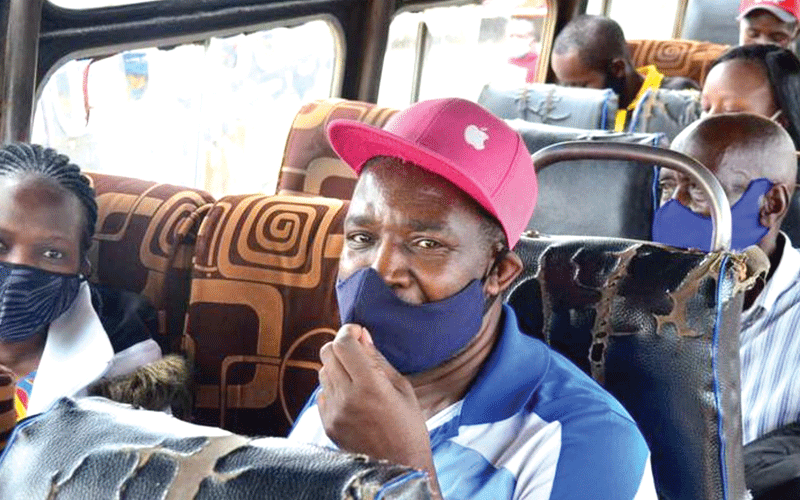Social distancing rules hurting our business, say PSV owners

Bernard Gitau @benagitau
Matatu operators have accused the government of discriminating against Public Service Vehicles (PSVs) in the implementation of the Ministry of Health Covid-19 containment measures.
Speaking on behalf of his colleagues, Matatu Owners Association (MOA) chairman Simon Kimutai, said PSVs are incurring enormous losses due to social distancing restrictions, which have seen them continue to operate on half capacity.
Kimutai questioned why the railway, airlines and boda boda operators are operating at full capacity while matatus are restricted to the social distancing rule.
“We need fairness in the implementation of Covid-19 containment measures.
Discriminating against PSVs by portraying them as a vector in transmission of Covid-19 is in bad faith,” said Kimutai.
Speaking to People Daily, Kimutai said PSV operators are holding talks with the government to review some of the guidelines. He confirmed that they have not considered a national strike.
“We need to see government intervention in salvaging the sector from collapsing.
At the moment, the sector is making 50 per cent losses in revenue,” he said.
He noted that at the moment, operators are eating into their capital to factor for depreciation and repair expenses.
“We have seen political gatherings with no Covid-19 protocols being followed.
Schools are operational; churches, bars and pubs and other entertainment sectors are on. Why us?” Kimutai questioned.
Cashless system
The official appealed to the government to allow matatus to operate at full capacity, saying they will adhere to hand washing, wearing masks, among other guidelines in collaboration with the National Transport and Safety Authority and Ministry of Health.
He also called for enforcement of the cashless payment system as a measure to curb the spread of the virus.
In 2014, President Uhuru Kenyatta launched the PSV cashless 1963 card during the MOA Annual Delegates Conference at the Kenyatta International Conference Centre, but its use has been limited.
The PSV sector has been flagged as a weak link in the fight against Covid-19. According to a report dubbed Transportation in Kenya: The Weak Link in the Fight Against Covid-19 by Transport Research International Documentation, in Nairobi, about 42 per cent of daily commuters walk.
Some 48 per cent ride in matatus, five per cent commute by private car, and the remaining five per cent use other modes of transport.
Congested matatus
The report indicated the exact mode of spread of Covid-19 is a subject of debate among experts.
“It is felt that being within two meters of an infected person for more than 15 minutes could expose someone to great risk of infection,” the report reads.
With overcrowding being rampant in public transport vehicles especially matatus, risk of infection is high.
Studies estimate that during the morning peak in Nairobi, the average vehicle speed is about 8.3 km/hour and 7.6 km/hour during the evening peak.
This shows that commuters in congested matatus and buses may be easily exposed to risk of infection in case one of the commuters has a virus.










